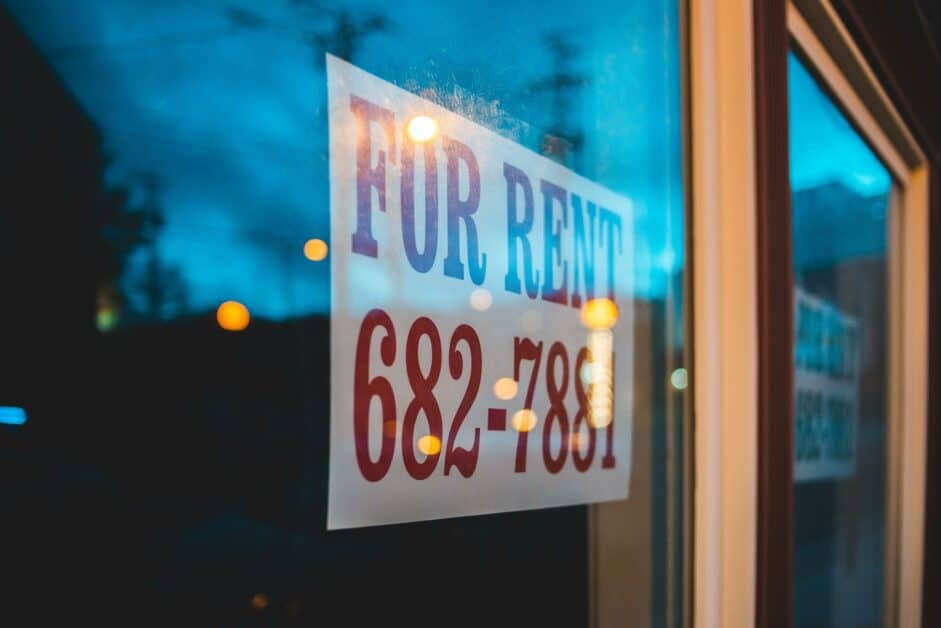Florida has always been seen as a prime location for real estate investment. The Sunshine State has all of the magical properties that make it attractive for investors – a booming economy, lots of real estate options, and significant growth across many areas. What’s more, hundreds of millions of tourists flock there every year and the economy is booming. But is Florida a landlord friendly state? In this article, we’ll learn more about tenant and landlord rights to help you learn about whether or not Florida is a good state for landlords.
Key Takeaways
- Florida is considered a landlord-friendly state that favors landlord rights over tenant rights.
- Landlords have various rights in Florida that aren’t available elsewhere, such as no rent control.
- Landlords in Florida may evict tenants with shorter notice periods than in other states.
- You don’t have to register to become a landlord in Florida, adding to it’s flexible framework for landlords.
Is Florida A Landlord Friendly State?

As state law is responsible for defining tenant and landlord rights, there is quite a wide variance in the level of rights each party has when entering a rental agreement. In Florida, the regulations around renting are viewed as favoring the landlord, making it a landlord-friendly state. There are a few different aspects of tenant and landlord rights that make being a landlord in Florida particularly beneficial. These include:
- Evictions: Florida offers landlords a streamlined eviction process that gives them more flexibility around evicting tenants. If the tenant doesn’t pay rent or violates the terms of the lease, then the landlord can carry out an eviction much more quickly than in other states.
- Rent Controls: There are no state-imposed rent control policies in Florida, which means that landlords are free to set and raise rental prices with greater flexibility. This allows for rent changes to align with things like market demand or rising rates.
- Security Deposits: Although landlords must hold security deposits in their own separate bank accounts, Florida doesn’t have a limit on the amount of security deposit a landlord can charge.
- Leases: Landlords in Florida enjoy a great deal of flexibility in how they handle the terms of a lease. They can set various conditions, stipulations, and rules in the rental agreement.
- Property Taxes: Florida also has very favorable property tax rates, making it more appealing to be a landlord here.
Although Florida’s setup is ideally suited for landlords, there are still federal laws to contend with. This includes things such as fair housing regulations that apply across all states. With all of that said, the rules that the state of Florida is responsible for generally favor landlords over tenants. To get the most out of Florida’s landlord-friendly status, be sure to enlist the help of an investor-friendly real estate agent who can help you navigate the state and federal laws easily.
What Makes Florida A Landlord Friendly State?

There are various legal and regulatory frameworks found in Florida that make it a landlord-friendly state. These are wide-ranging and cover everything from property management to eviction rules. Some of the main areas that classify Florida is a landlord-friendly state include:
- Ease of Eviction: If a tenant isn’t abiding by the rules or fails to make rental payments, then landlords in Florida can serve a three-day notice. This short window for eviction can expedite the process and ensure the property is back to generating rent quickly.
- No Rent Control: Florida doesn’t have any outlined rent control agreements. So landlords have the flexibility to charge rent however they see fit, allowing them to adjust prices to market conditions.
- Security Deposits: As mentioned above, there are no limits on how much of a security deposit landlords can charge.
- Property Rights: Florida places a strong emphasis on property rights for the landowner (and in turn, landlord) which tends to favor landlords during legal issues or when drafting the terms of a lease.
- Taxes: The tax rates in Florida are quite favorable for landlords. There is no state tax in Florida, sales taxes are quite low (6 %) and property taxes are also quite low. All of this makes Florida’s tax status favorable for landlords when it comes to investing in properties and maintaining them for rental purposes.
In contrast to Florida’s model, states like California are seen as tenant-friendly. They offer enhanced tenant protection by making it tougher for landlords to evict tenants quickly or capping security deposits. Although these seem helpful at face value, for landlords these measures can actually do more harm than good. From making it harder to establish appropriate rules in lease terms to extending the eviction process, landlords in these states have much more problems to contend with than those in Florida.
No more guesswork. Accurate estimates only.
Talk to an investor agent
What Rights Do Landlords Have In Florida?

Landlord rights in Florida cover the whole state and aim to safeguard landlords when managing their rental properties. As mentioned above, many of the laws and regulations around renting in Florida are landlord-friendly. So, let’s take a look at these rights to see how they help landlords:
- Collecting Rent: Landlords have the right to collect rental payments as specified in the terms of the lease agreement. This includes a set price paid at a scheduled date. This price can also be increased at the request of the landlord, as per Florida law.
- Security Deposits: Landlords also have the right to collect a security deposit when starting the lease agreement with a tenant. Although it must be stored in a separate bank account from the landlord’s own, there isn’t any limit on how much the security deposit is. This deposit can then be used to offset costs associated with unpaid rent or damage to the property.
- Evictions: Landlords can evict tenants if they fail to pay rent or break the terms of the lease. In Florida, timelines for evictions are streamlined, but it’s still important for landlords to follow the correct procedures.
- Entering the Property: Landlords are legally allowed to enter the rental property for things like inspections, maintenance, or for viewings. There must be reasonable notice of this for the tenants, which is typically 12 hours (except for emergencies like flooding).
- Enforcing Lease Terms: Landlords are allowed to enforce the terms outlined in the lease as long as they are legal. This might include things like enforcing rules around pets or subletting properties.
What Landlords Cannot Do In Florida
Even though Florida is a landlord-friendly state, there are still certain things that landlords cannot do. This is particularly the case when it comes to breaking state laws in Florida or impeding tenant rights. Some of the main things a landlord can’t do in Florida include:
- Discriminating against prospective tenants based on race, color, nationality, religion, gender, or disability.
- Arbitrary rental increases are not permitted in Florida unless the terms of the lease explicitly state the terms of the increase in rent.
- Landlords cannot force entry into a rental property without providing proper notice unless there is an emergency or the lease specifies it.
- Security deposits can’t be held in the landlord’s own personal bank account. Security deposits can’t be improperly deducted either, and an itemized list of deductions must be provided if the deposit is used for things like repairs.
- Utilities must never be turned off on the property, even if the tenant hasn’t paid rent on time. Similarly, the tenant can’t be locked out of the property as the proper eviction process must be carried out.
- Maintenance and repairs cannot be neglected by the landlord. All properties must be deemed habitable and any repairs must be carried out professionally and promptly.
Is Florida A Rent Controlled State?
Florida isn’t classified as a rent-controlled state and actively prohibits cities in the state from enforcing rent-control measures. This gives landlords here the ability to set their own prices on rent and the power to increase rents so they align with market conditions.
As a result of this lack of rent control, landlords have much more flexibility in terms of how much they charge rent. So during times of high demand, they can push the rental prices up to meet the current demand in the market. This is particularly useful for some of the tourist-heavy parts of Florida and high-demand areas.
How Does Florida Compare To The Worst Landlord-Friendly States?
When comparing Florida to some of the least landlord-friendly states like California and New York, it highlights each state’s unique approach to property rental regulations. Florida has a relatively streamlined eviction process that can potentially occur in a matter of days. In contrast, places like New York are some of the worst landlord-friendly states as they have strict eviction laws that grant tenants enhanced protections.
One of the biggest differences between Florida and tenant-friendly states is rent control rules. In Florida, landlords have the freedom to set rates at whatever they like and can increase rates easily. In places like California and other tenant-friendly states, rent control and stabilization laws limit how much rent landlords charge.
In Florida, there isn’t any limit on security deposits. This allows landlords to set deposits at whatever level they see fit. Elsewhere, tenant-friendly states have set limits on what can be charged. Generally speaking, tenant protections are much more enhanced in these states when compared to Florida. That means that the legal environment can be more difficult for landlords to navigate in tenant-friendly states when compared to Florida.
Can A Landlord Evict You In Florida?
https://drive.google.com/file/d/1UZ0H0CNxFLR15C6Ri1LHA8mWipanCTKY/view?usp=drive_link
(eviction-notice-letter)
One of the key differences between Florida and tenant-friendly states is the process for evicting tenants. In Florida, landlords have the power to evict tenants in a more streamlined way than tenant-friendly states, but there are still procedures to follow. The landlord must first have a valid reason to enforce the eviction, such as non-payment of rent or tenants violating lease terms.
It’s also important that the landlord provides adequate notice of the violation. For rent arrears, this is typically three days. For lease violations, it’s 7 days’ notice. If the tenant doesn’t acknowledge or comply with the notice, then the landlord can file for an eviction lawsuit. The tenant will be served a court summons for this lawsuit, which they must respond to within 5 working days. If they fail to respond, then the landlord can start the eviction process.
This ability to streamline evictions is one of the benefits for landlords in Florida. It allows them to recover lost income through bad tenants quickly and return the property without a drawn-out process.
How Long Does A Tenant Have To Vacate In Florida?
In Florida, the amount of time a tenant has to vacate will depend on the reason for the eviction. So to give you a better idea of time scales, let’s go over a few different reasons for eviction and how long tenants have to vacate:
- For tenants that haven’t paid rent, Florida law outlines that landlords must provide three days’ notice for payment. If this lapses, the landlord can then move onto eviction.
- For tenants who violate the terms of a lease, landlords must provide a 7-day notice to fix the violation. Alternatively, if the violation can’t be remedied then the landlord can serve a 7-day notice for eviction.
- For tenants at the end of their lease, landlords generally provide a 15-day notice for eviction.
Eviction processes can get quite complicated as it often depends on the case-by-case nature of the eviction. As a result, it’s always helpful to consult a legal professional who understands the intricacies of eviction in Florida.
Rent Deposit Regulations In Florida
Florida outlines specific regulations around rent deposits and how landlords should handle them. The aim of these regulations is to protect both the landlord’s property and the rights of the tenant. Let’s go over these regulations below:
Holding Deposits
All landlords in Florida must hold security deposits in a bank account that is separate from their own. This might be in the form of a non-interest account or as a surety bond. If the landlord opts for an interest-bearing account, then the tenant must receive either 75 % of the accrued annual interest or 5 % per year in simple interest. The tenant should be made aware of how the deposit is being stored within 30 days of sending it.
Claiming Deposits
When the tenancy ends, the landlord can use the security deposit to cover damages to the rental property. The notice of these charges must be sent to the tenant within 30 days of the tenant vacating the property. This notice should outline the claim made on the deposit and what it is paying for. The tenant can then object to these claims in court.
Returning Deposits
If the landlord intends to return the security deposit, then it must be returned (along with any accrued interest) within 15 days of the tenant vacating the property. If only a portion of the deposit is used for repairs, then the landlord is also required to return the remaining portion within 30 days.
What Is The Florida Landlord Association?
The Florida Landlord Association is an organization that offers landlords various resources, support, and advocacy in the state of Florida. They provide landlords in Florida with an excellent service that helps inform and protect them against various tenant disputes and issues. Some areas they help with include:
- Legal advice and guidance for landlords.
- Help with filling out forms or creating documents.
- Advocacy for landlords to help back landlord-friendly policies and regulations.
- Support services to help with conflict resolution, financial management, and tenant screening.
Registration And Licenses You Need To Be A Landlord In Florida
Florida doesn’t require any sort of license or registration if you want to become a landlord. With that said, there may be regulations or requirements that you’ll need to adhere to. For example, certain local jurisdictions might need you to hold a rental permit if you intend to rent out a property. Or, if you’re renting a property for short-term stays then you might need to pay additional taxes which require registration.
Is Florida Also A Tenant Friendly State?
Although many facets of rental regulations favor landlords in Florida, there are still aspects that could be classified as tenant-friendly too. There is a clear process for evictions here, so tenants will never be unexpectedly thrown out of a property. There are also habitability standards that landlords must adhere to, ensuring that tenants have a safe and functional property to live in. Many of these rights are federally protected, so it would be very difficult for a landlord to go against them.
With great insights come great investments. And even greater profit.















